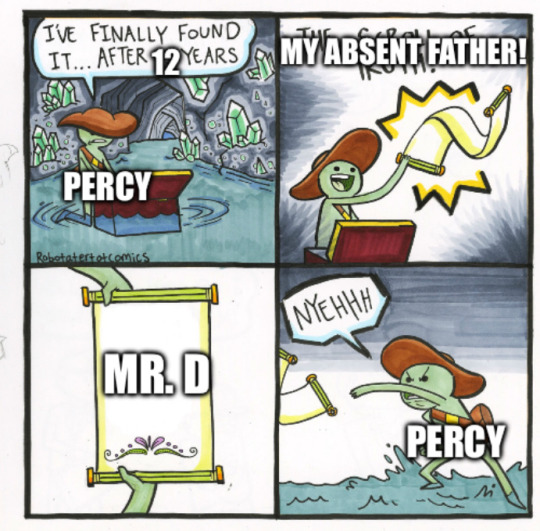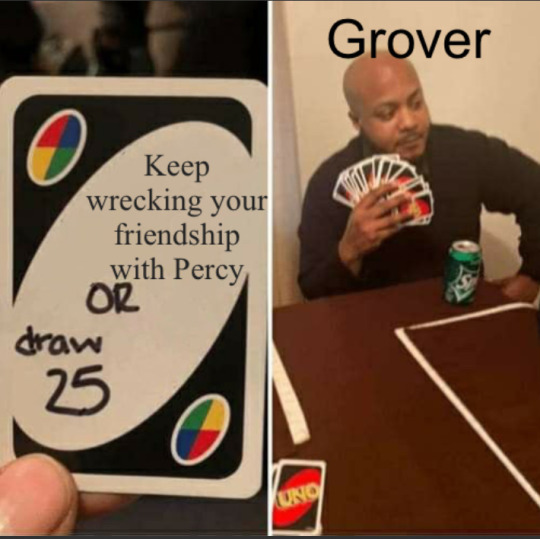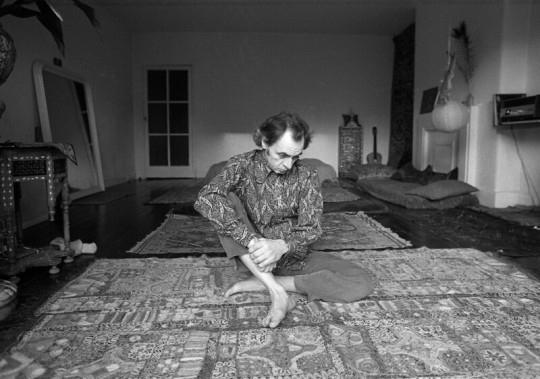#r d laing
Text

Mary Barnes by Mary Barnes and Joseph Berke
10 notes
·
View notes
Text

“The specifically human feature of human groupings can be exploited to turn them into the semblance of nonhuman systems.
We do not now suppose that chemical elements combine together because they love each other. Atoms do not explode out of hatred. It is men who act out of love and hatred, who combine for defense, attack, or pleasure in each other's company.
All those people who seek to control the behavior of large numbers of other people work on the experiences of those other people. Once people can be induced to experience a situation in a similar way, they can be expected to behave in similar ways. Induce people all to want the same thing, hate the same thing, feel the same threat, then their behavior is already captive - you have acquired your consumers or your cannon-fodder. Induce a common perception of Negroes as subhuman, or of whites as vicious and effete, and behavior can be concerted accordingly.
However much experience and action can be transformed into quantitatively interchangeable units, the schema for the intelligibility of group structures and permanence is of quite a different order from the schema we employ when we are explaining relative constancies in physical systems. In the latter case, we do not, in the same way, retrace the constancy of a pattern back to the reciprocal interiorization of the pattern by whatever one regards as the units comprising it. The inertia of human groups, however, which appears as the very negation of praxis, is in fact the product of praxis and nothing else. This group inertia can only be an instrument of mystification if it is taken to be part of the "natural order of things." The ideological abuse of such an idea is obvious. It so clearly serves the interests of those whose interest it is to have people believe that the status quo is of the "natural order," ordained divinely or by "natural" laws. What is less immediately obvious, but no less confusing, is the application of an epistemological schema, derived from natural systems, to human groups. The theoretical stance here only serves to intensify the dissociation of praxis from structure.
The group becomes a machine - and that it is a man-made machine in which the machine is the very men who make it is forgotten. It is quite unlike a machine made by men, which can have an existence of its own. The group is men themselves arranging themselves in patterns, strata, assuming and assigning different powers, functions, roles, rights, obligations and so on.
The group cannot become an entity separate from men, but men can form circles to encircle other men. The patterns in space and time, their relative permanence and rigidity, do not turn at any time into a natural system or a hyperorganism, although the fantasy can develop, and men can start to live by the fantasy that the relative permanence in space-time of patterns and patterns of patterns is what they must live and die for.
It is as though we all preferred to die to preserve our shadows.
For the group can be nothing else than the multiplicity of the points of view and actions of its members, and this remains true even where, through the interiorization of this multiplicity as synthesized by each, this synthesized multiplicity becomes ubiquitous in space and enduring in time.
It is just as well that man is a social animal, since the sheer complexity and contradiction of the social field in which he has to live is so formidable. This is so even with the fantastic simplifications that are imposed on this complexity, some of which we have examined above.
Our society is a plural one in many senses. Any one person is likely to be a participant in a number of groups, which may have not only different memberships, but quite different forms of unification.
Each group requires more or less radical internal transformation of the persons who comprise it. Consider the metamorphoses that one man may go through in one day as he moves from one mode of sociality to another family man, speck of crowd dust, functionary in the organization, friend. These are not simply different roles: each is a whole past and present and future, offering differing options and constraints, different degrees of change or inertia, different kinds of closeness and distance, different sets of rights and obligations, different pledges and promises.
I know of no theory of the individual that fully recognizes this. There is every temptation to start with a notion of some supposed basic personality, but halo effects are not reducible to one internal system. The tired family man at the office and the tired businessman at home attest to the fact that people carry over, not just one set of internal objects, but various internalized social modes of being, often grossly contradictory, from one context to another.
Nor are there such constant emotions or sentiments as love, hate, anger, trust or mistrust. Whatever generalized definitions can be made of each of these at the highest levels of abstraction, specifically and concretely, each emotion is always found in one or another inflection according to the group mode it occurs in. There are no "basic" emotions, instincts or personality, outside of the relationships a person has within one or another social context.
There is a race against time. It is just possible that a further transformation is possible if men can come to experience themselves as "One of Us." If, even on the basis of the crassest self-interest, we can realize that We and They must be transcended in the totality of the human race, if we in destroying them are not to destroy us all.
As war continues, both sides come more and more to resemble each other. The uroborus eats its own tail. The wheel turns full circle. Shall we realize that We and They are shadows of each other? We are They to Them as They are They to Us. When will the veil be lifted? When will the charade turn to carnival? Saints may still be kissing lepers. It is high time that the leper kissed the saint.” (p. 64 - 67)
#laing#r d laing#rd laing#politics#experience#psychiatry#antipsychiatry#groups#humans#uroborus#oroboros#war#lacan#books#bookshelf#library#sartre
6 notes
·
View notes
Text
This writing is not exempt. It remains like all writing an absurd and revolting effort to make an impression on a world that will remain as unmoved as it is avid. If I could turn you on, if I could drive you out of your wretched mind, if I could tell you, I would let you know.
R. D. Laing, The Politics of Experience, 1967
13 notes
·
View notes
Text
Children do not give up their innate imagination, curiosity, dreaminess easily. You have to love them to get them to do that. Love is the path through permissiveness to discipline: and through discipline, only too often, to betrayal of self.
R. D. Laing, The Politics of Experience (p. 60)
1 note
·
View note
Text

R. D. Laing, The Politics of Experience and The Bird of Paradise
0 notes
Quote
Life is a sexually transmitted disease and the mortality rate is one hundred percent.
R. D. Laing
#R. D. Laing#motivation#quotes#poetry#literature#relationship quotes#writing#original#words#love#relationship#thoughts#lit#prose#spilled ink#inspiring quotes#life quotes#quoteoftheday#love quotes#poem#aesthetic
253 notes
·
View notes
Text


I will broker no arguments.
#10th doctor#doctor who#tenth doctor#alec hardy#broadchurch#david tennant#alignment meme#alignment chart#nativity 2: danger in the manger#campbell bain#takin over the asylum#what we did on our holiday#hbo camping#inside man#there she goes#staged bbc#r. d. laing#mad to be normal#spies of warsaw#phileas fogg#around the world in 80 days#hamlet 2009#richard ii#much ado about nothing#benedick#anthony j crowley#good omens#rex is not your lawyer#kilgrave#taylor swift eras
154 notes
·
View notes
Quote
Life is a sexually transmitted disease and the mortality rate is one hundred percent.
R. D. Laing
#R. D. Laing#motivation#quotes#poetry#literature#relationship quotes#writing#original#words#love#relationship#thoughts#lit#prose#spilled ink#inspiring quotes#life quotes#quoteoftheday#love quotes#poem#aesthetic
77 notes
·
View notes
Quote
Life is a sexually transmitted disease and the mortality rate is one hundred percent.
R. D. Laing
#R. D. Laing#motivation#quotes#poetry#literature#relationship quotes#writing#original#words#love#relationship#thoughts#lit#prose#spilled ink#inspiring quotes#life quotes#quoteoftheday#love quotes#poem#aesthetic
50 notes
·
View notes
Quote
Life is a sexually transmitted disease and the mortality rate is one hundred percent.
R. D. Laing
#R. D. Laing#motivation#quotes#poetry#literature#relationship quotes#writing#original#words#love#relationship#thoughts#lit#prose#spilled ink#inspiring quotes#life quotes#quoteoftheday#love quotes#poem#aesthetic
100 notes
·
View notes
Text

The Dialectics of Liberation edited by David Cooper with contributions by R. D. Laing, Stokely Carmichael, Herbert Marcuse, amongst others.
#books#vintage books#penguin books#pelican books#david cooper#r d laing#stokely carmichael#herbert marcuse#1968#60s
8 notes
·
View notes
Quote
Life is a sexually transmitted disease and the mortality rate is one hundred percent.
R. D. Laing
#R. D. Laing#motivation#quotes#poetry#literature#relationship quotes#writing#original#words#love#relationship#thoughts#lit#prose#spilled ink#inspiring quotes#life quotes#quoteoftheday#love quotes#poem#aesthetic
116 notes
·
View notes
Quote
Life is a sexually transmitted disease and the mortality rate is one hundred percent.
R. D. Laing
#R. D. Laing#motivation#quotes#poetry#literature#relationship quotes#writing#original#words#love#relationship#thoughts#lit#prose#spilled ink#inspiring quotes#life quotes#quoteoftheday#love quotes#poem#aesthetic
63 notes
·
View notes
Text
memes for Percy Jackson and the Olympians, 1x02: "I Become Supreme Lord of the Bathroom"
*SPOILERS*






#percy jackson#percy jackson adaptation#percy jackson spoilers#pjo show#annabeth chase#clarisse la rue#mr d pjo#dionysus pjo#chiron pjo#when i'm telling you that the mr d pretends to be percy's dad to get him to bring him wine was the funniest bit they possibly could#have added? i MEAN IT#i was ROLLING it was so goddamn funny#this show <3#really hope this trend continues#r makes memes
91 notes
·
View notes
Text
Undoubtedly, most people take to be 'really' true only what has to do with grammar and the natural world. A man says he is dead but he is alive. But his 'truth' is that he is dead.
R. D. Laing, The divided self (p. 37)
0 notes
